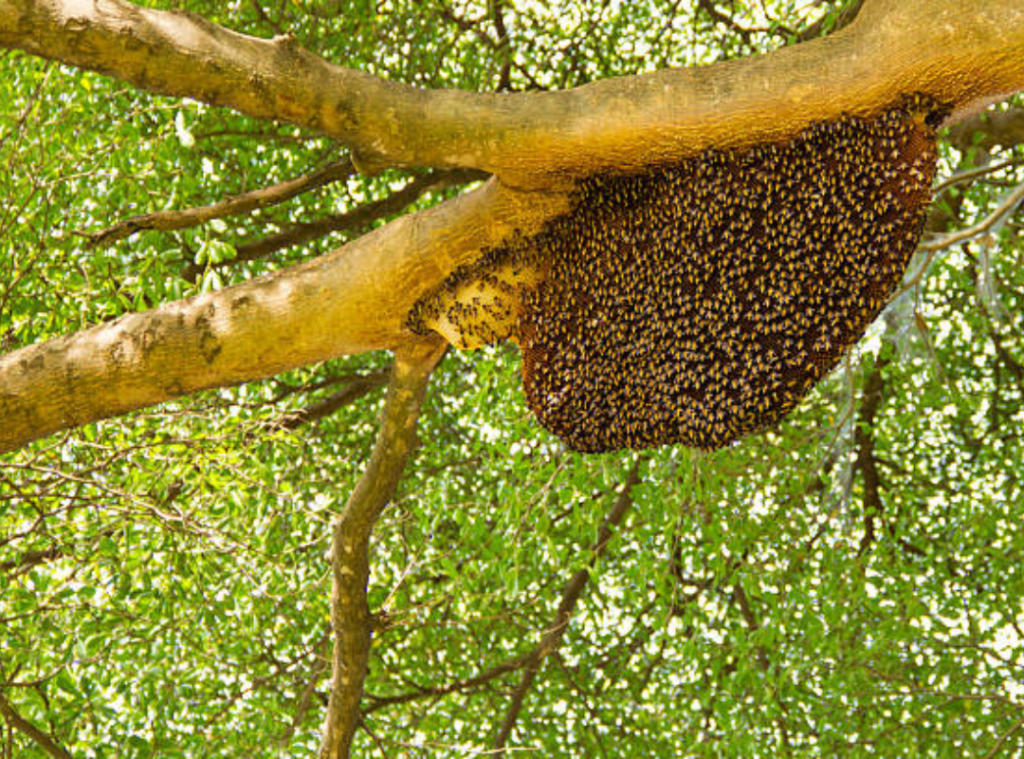
Best Natural Substances to Discourage Bee Swarms
When spring rolls around, bees begin their annual search for new homes. While this is a natural and essential part of the ecosystem, it can be unsettling for homeowners when bee swarms settle on porches, trees, or garden sheds. Swarming bees aren’t typically aggressive, but their presence can still pose a risk, especially for those with allergies or pets. Fortunately, there are several natural substances that can help deter swarms without causing harm to these vital pollinators. In this article, we’ll explore effective, eco-conscious methods to keep your property swarm-free.
Understanding Bee Swarms and Their Behavior
Before diving into natural deterrents, it’s crucial to understand bee swarms and why they happen. Swarming is part of a colony’s reproductive process. When a hive becomes overcrowded, the queen and a portion of the worker bees leave to find a new nesting site. These bees may cluster temporarily in visible, inconvenient places—like tree branches or fence posts—while scout bees look for a permanent location. While they may seem threatening, swarming bees are usually at their most docile because they aren’t defending a hive or brood. That said, nobody wants their backyard to become a pit stop for thousands of bees. The goal is to use natural substances to make your property unappealing as a landing zone.
Essential Oils That Repel Bee Swarms
Certain essential oils are known to repel bee swarms due to their strong scent profiles. Bees rely heavily on pheromones for communication and navigation. When strong, foreign scents dominate an area, it can interfere with their natural behavior and deter them from settling.
One of the most effective essential oils is citronella. Commonly used to repel mosquitoes, citronella also masks the pheromone trails bees use, making it harder for scout bees to signal a suitable location. Peppermint oil has a similarly strong aroma that bees dislike. Simply soaking cotton balls in these oils and placing them around high-risk areas like eaves, sheds, or attics can act as a deterrent.
Lemongrass oil, on the other hand, should be avoided for this purpose. It mimics the queen bee pheromone and can actually attract swarms if misused. Always verify the effect of any scent-based solution before applying it liberally around your property.
Vinegar-Based Solutions for Preventing Bee Swarms
A natural, non-toxic deterrent found in most households is vinegar. Its sharp smell is unpleasant to bees and can be used to discourage scout bees from marking a location. Mixing equal parts white vinegar and water and spraying the solution around potential swarm sites—like tree hollows, fence posts, and roof eaves—can significantly reduce the likelihood of bees choosing your space.
Vinegar also neutralizes residual pheromone scents that may attract future swarms. It’s especially effective after a previous swarm has vacated a location, as it ensures the area doesn’t remain on the bees’ radar. Be careful, though—vinegar should not be sprayed directly on plants or flowers, as it can affect pollination and plant health.
Safe Alternatives When You Spot a Swarm
If a swarm does arrive despite your preventative efforts, it’s important to stay calm and keep your distance. Attempting to remove a swarm with pesticides or aggressive action can harm the bees and increase the risk of stings. This is where professional help comes in. For residents in Southern California dealing with swarming issues, a bee removal service in Mission Viejo, CA offers a humane and efficient solution. These professionals can safely relocate the bees, ensuring the colony’s survival while protecting your property and family.
Rather than treating bees as pests, ethical services emphasize conservation and ecosystem balance. If natural deterrents fail and a swarm persists, hiring an experienced removal service is the most responsible action you can take.
Using Plants as Natural Bee Deterrents
While many plants attract bees, there are also several that act as natural repellents. Incorporating these into your landscaping can provide long-term protection against bee swarms. Eucalyptus, wormwood, and marigolds are known for their strong scents and are generally unappealing to bees. Planting these around the perimeter of your yard or near common swarm sites can create a fragrant barrier that discourages colonization.
Additionally, cucumber peels contain a compound that releases a bitter smell bees dislike. Spreading these peels in high-risk areas like attics or shaded corners can provide temporary relief during peak swarming season. These methods not only protect your property but do so without causing harm to pollinators, preserving their critical role in your garden’s ecosystem.
Avoiding Bee-Attracting Elements Around Your Property
Prevention isn’t just about what you add to your environment—it’s also about what you remove. Avoid leaving out sugary drinks, fruit waste, or open garbage cans, especially in warm weather. These attract scout bees and can inadvertently signal your yard as a promising food source or nesting site.
Seal cracks, cover vents with mesh, and screen attic windows to eliminate access to ideal swarm locations. Trim overgrown vegetation and remove old furniture or wood piles where bees might find shelter. By proactively managing your space, you make it less attractive to bees in search of a temporary home.
Final Thoughts on Discouraging Bee Swarms Naturally
Living in harmony with bees is not only possible—it’s necessary. While it’s important to discourage bee swarms from forming too close to home, these creatures remain essential pollinators in our environment. The natural substances and techniques discussed here offer a safe, humane way to prevent bee swarms without harming the colony or resorting to chemical repellents.
Whether you’re using essential oils, planting deterrent species, or simply maintaining a clutter-free yard, the key is consistency. Early-season prevention can go a long way in making your space less appealing to swarming bees. And if a swarm does arrive? Knowing you have safe, professional options available can make all the difference.





